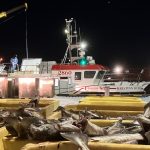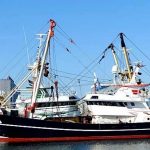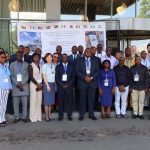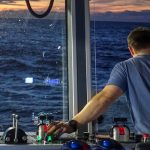According to a detailed analysis of data from nearly 50 years of weekly fish-trawl surveys in Narragansett Bay and adjacent Rhode Island Sound there is an increase of invertebrates and warm-water species and decrease of bottom feeders. As per the report of analysis a long-term shift in species composition, which scientists attribute primarily to the effects of global warming.
Jeremy Collie, professor of oceanography at the University of Rhode Island’s Graduate School of Oceanography, informed that the fish community has shifted progressively from vertebrate species (fish) to invertebrates (lobsters, crabs and squid) and from benthic or demersal species – those that feed on the bottom – to pelagic species that feed higher in the water column.
The report also revealed that the smaller, warm-water species have increased while larger, cool-water species have declined. Collie explained that this is a pretty dramatic change, and it’s a pattern that is being seen in other ecosystems, including offshore on Georges Bank and other continental shelf ecosystems, but we’re in the relatively unique position of being able to document it. These patterns are likely being seen in estuaries around the world, but nowhere else has similar data.
According to Collie most of the changes occurred slowly, an abrupt change appeared to take place in 1980 and 1981 and at the same time benthic species like winter flounder and silver hake declined and pelagic species including butterfish and bluefish increased. Collie also said that there has been a shift in the food web resulting in more of the productivity being consumed in the water column.
It is said that the analysis also found that while the total number of fish caught in each trawl increased over time, peaking in the 1990s, the size of those fish decreased. The analysis shows that the shift in species composition also correlates with the winter North Atlantic Oscillation index and with chlorophyll concentrations, which declined by 50 percent, both of which are related to warmer sea temperatures.








